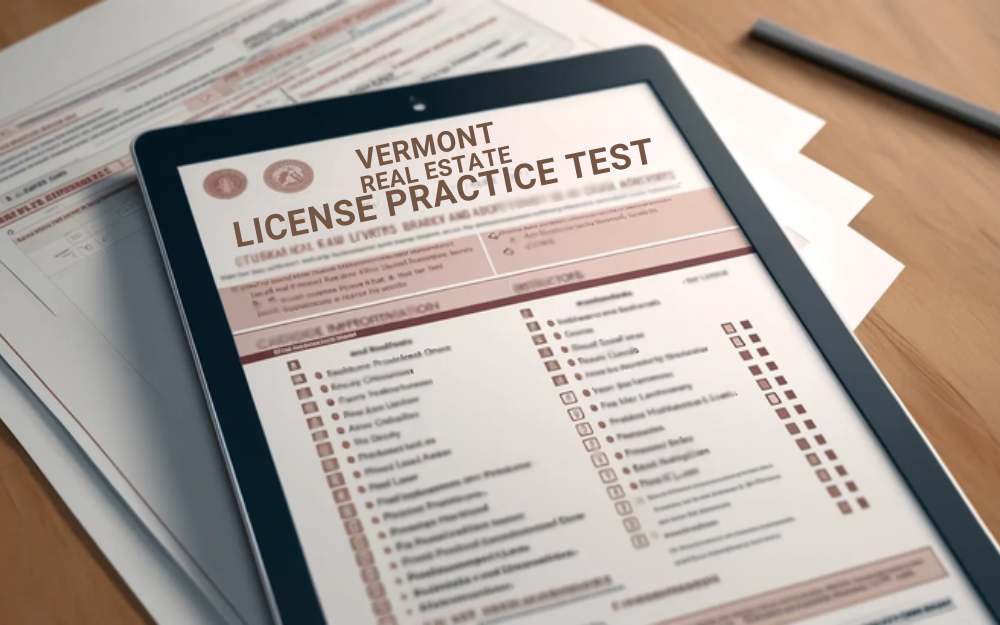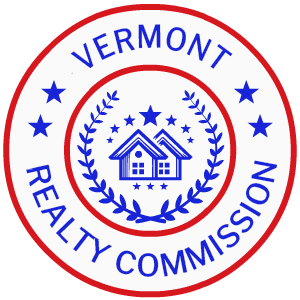
Determine your answer, then click the arrow to see the correct response.
What Is "Usufruct" in Real Estate?
A) The right to own a property outright
B) The right to use and enjoy the benefits of someone else’s property without owning it
C) The right to sell a property
D) The right to lease a property
Correct Answer: B) The right to use and enjoy the benefits of someone else’s property without owning it
Explanation: Usufruct is a legal right accorded to a person or party that confers the temporary right to use and derive income or benefit from someone else’s property, provided the property is not damaged or altered in any way.
A Property in Vermont Is Listed for $350,000. The Buyer Negotiates a 12% Discount on the Listed Price. What Is the Final Purchase Price After the Discount?
A) $304,000
B) $308,000
C) $312,000
D) $315,000
Correct Answer: B) $308,000
Explanation: A 12% discount on $350,000 is $350,000 × 0.12 = $42,000. The final purchase price after the discount is $350,000 – $42,000 = $308,000.
What Is "Encroachment" in Real Estate Terms?
A) A formal agreement to use someone else’s land
B) An unauthorized physical intrusion onto someone else’s property
C) The legal process of transferring property
D) A boundary dispute resolution
Correct Answer: B) An unauthorized physical intrusion onto someone else’s property
Explanation: Encroachment occurs when a structure or improvement illegally intrudes on another’s land, diminishing the size and value of the land. Common examples include fences, buildings, and overhanging trees.
What Is "Seller Financing"?
A) When a buyer pays the full property price upfront
B) When a seller provides a loan to the buyer to purchase the property
C) When a seller pays for the buyer’s closing costs
D) When a seller guarantees the buyer’s mortgage
Correct Answer: B) When a seller provides a loan to the buyer to purchase the property
Explanation: Seller financing occurs when the seller of a property provides financing to the buyer to facilitate the purchase. The buyer makes payments directly to the seller according to agreed terms, often outlined in a promissory note.
A Homeowner in Vermont Has a Mortgage Balance of $250,000 With an Annual Interest Rate of 4%. If They Make a Lump-Sum Payment of $50,000 Towards the Principal, How Much Interest Will They Save Over the Remaining Term of the Loan, Assuming 20 Years Are Left on the Mortgage?
A) $24,000
B) $26,000
C) $28,000
D) $30,000
Correct Answer: C) $28,000
Explanation: By making a lump-sum payment of $50,000 towards the principal, the new balance becomes $200,000. The interest savings over the remaining term of 20 years is calculated based on the difference in interest payments before and after the lump-sum payment. Interest savings = $50,000 * 0.04 * 20 = $40,000.
What Must a Nonresident Seller in Vermont Do When Selling Property To Comply With the State's Real Estate Withholding Laws?
A) Provide proof of residency
B) Ensure that all taxes are paid or withheld from the sale proceeds
C) Pay a flat fee to the state
D) Obtain a waiver from the Vermont Real Estate Commission
Correct Answer: B) Ensure that all taxes are paid or withheld from the sale proceeds
Explanation: Vermont requires nonresident sellers to withhold a portion of the sale proceeds to cover potential state tax liabilities. If the taxes are not withheld, the nonresident seller must ensure that all taxes are paid to avoid penalties (Vermont Statutes Annotated Title 32, § 5847).
Amber, a Vermont Real Estate Broker, Allows Her License To Lapse for Over Five Years. What Must She Do To Reinstate Her License?
A) Pay a late renewal fee and complete continuing education requirements
B) Apply for reinstatement and fulfill the initial licensure requirements, including taking an exam
C) Simply pay the renewal fee
D) Complete a training course within six months
Correct Answer: B) Apply for reinstatement and fulfill the initial licensure requirements, including taking an exam
Explanation: If a broker’s license has lapsed for more than five years, Vermont law requires the broker to apply for reinstatement according to the initial licensure requirements, which includes completing a course of instruction and passing an exam (Vermont Statutes Annotated Title 26, § 2293).
A Vermont Real Estate Agent Is Found Guilty of Unprofessional Conduct. What Actions Can the Vermont Real Estate Commission Take Against the Agent?
A) Issue a warning letter
B) Suspend or revoke the agent's license
C) Impose fines
D) Both B and C
Correct Answer: D) Both B and C
Explanation: The Vermont Real Estate Commission has the authority to suspend or revoke a license and impose fines if a real estate agent is found guilty of unprofessional conduct (Vermont Statutes Annotated Title 26, § 2296).
An Investor Buys a Multi-Family Property in Vermont for $800,000. The Property Generates an Annual Gross Income of $100,000 and Has Operating Expenses of $30,000 per Year. What Is the Property's Net Operating Income (NOI) and Its Gross Rent Multiplier (GRM)?
A) NOI: $60,000, GRM: 8
B) NOI: $70,000, GRM: 8
C) NOI: $70,000, GRM: 8.57
D) NOI: $60,000, GRM: 8.57
Correct Answer: C) NOI: $70,000, GRM: 8.57
Explanation: NOI is calculated as annual gross income minus operating expenses, $100,000 – $30,000 = $70,000. GRM is calculated as purchase price divided by gross income, $800,000 / $100,000 = 8.57.
A Commercial Property in Vermont Is Purchased for $1,200,000. The Property Generates $150,000 in Annual Net Operating Income (NOI). If the Owner Decides To Sell the Property and Wants a Capitalization Rate of 8%, What Should the Selling Price Be?
A) $1,750,000
B) $1,800,000
C) $1,850,000
D) $1,875,000
Correct Answer: B) $1,875,000
Explanation: The selling price is calculated by dividing the NOI by the desired capitalization rate. Selling price = $150,000 / 0.08 = $1,875,000.
